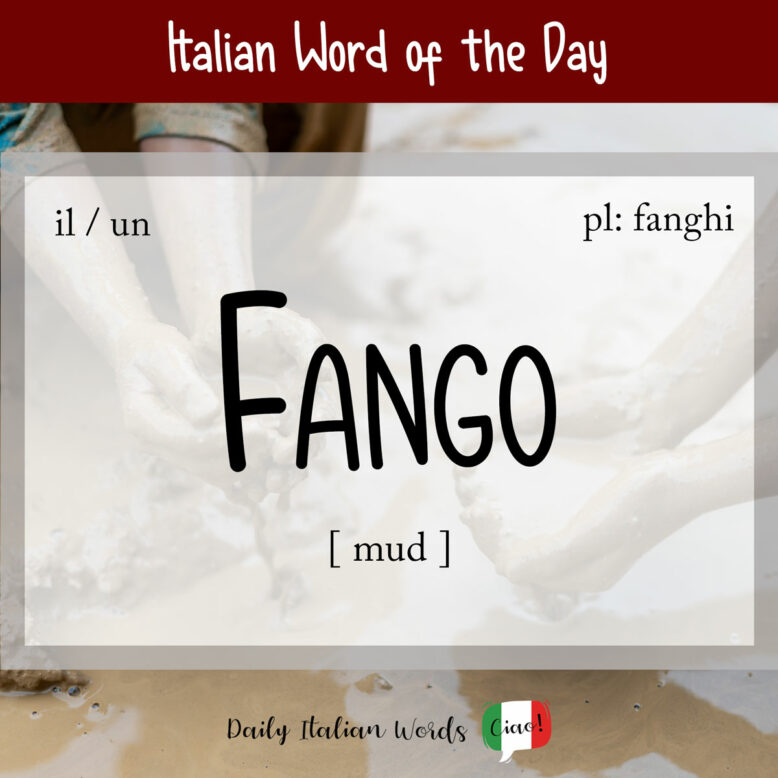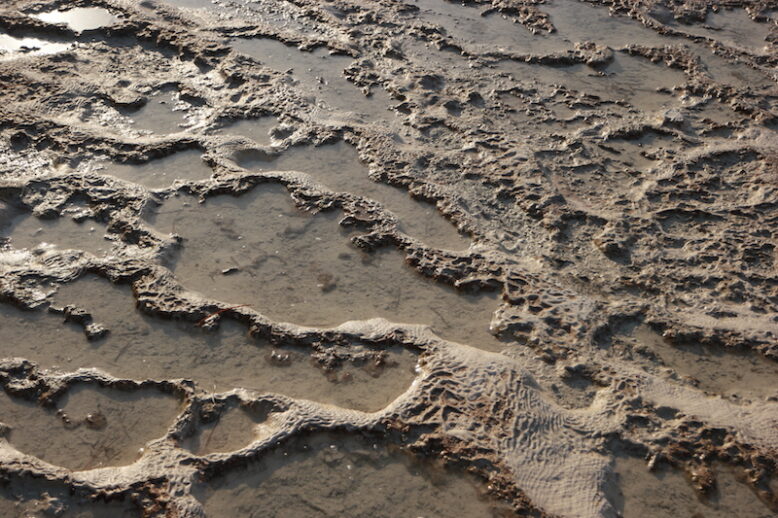When my son puts on his wellies, the first thing he does is look for a muddy puddle to jump into, just like his favourite character, Peppa Pig!
The Italian word for mud is the fittingly sounding fango. It is derived from the Gothic term *fanigs, meaning muddy.

Because it is a masculine noun, it takes the following definite and indefinite articles. Remember that in the plural form, -go becomes -ghi in order to retain the hard sound of the G.
- il fango = the mud
- i fanghi = the muds
- un fango = a mud
- dei fanghi = (some) muds
I bambini saltano nel fango.
The children jump in the mud.
Here are a few verbs you will frequently see in the company of fango:
- sguazzare nel fango = to wallow in the mud
- rotolarsi nel fango = to roll around in the mud
- schizzarsi di fango = to get splattered with mud

Although muddy can be expressed with the adjective fangoso, you will often hear the translations coperto di fango (literally “covered in mud”) or sporco di fango (literally “dirty with mud”) used instead.
Hai le scarpe sporche di fango. Toglile prima di entrare in casa!
You have muddy shoes. Take them off before coming inside the house!
Of course, fango can be used generically to refer to any sticky mix of earth and water, but it is also a more technical geological term referring to a natural deposit composed of clay, organic and inorganic substances, and water, known as mud or ooze in English. For example, we have fanghi termali (thermal mud), fanghi marini (sea mud) and fango a radiolari (radiolarian ooze).

Fango can also be used figuratively to mean dishonour, abjection, insult or slander. It often makes an appearance in the following three idiomatic expressions:
- gettare fango su qualcuno (literally “to throw mud on someone”) or gettare qualcuno nel fango (literally “to throw someone in the mud”) = to speak badly about someone / discredit them / mud-sling
- cadere nel fango (literally “to fall in the mud”) = to fall into the gutter
- trascinare nel fango (literally “to drag through the mud”) = to drag through the mire/mud
It also appears in the expression macchina del fango (literally “mud machine”). It refers to a smear campaign orchestrated by one or more media outlets, often relying on unreliable evidence and news. In English, the closest expression is character assassination.
Come osi trascinare il nome di mia madre nel fango?
How dare you drag my mother’s name through the mud?
To conclude, let’s take a quick look at some related terminology:
- bagno di fango = mud bath (fare i fanghi = to take mud baths)
- colata di fango = mudslide / mudflow
- lotta nel fango = mud wrestling
- torta di fango = mud pie
- pesce del fango = mudfish
Heather Broster is a graduate with honours in linguistics from the University of Western Ontario. She is an aspiring polyglot, proficient in English and Italian, as well as Japanese, Welsh, and French to varying degrees of fluency. Originally from Toronto, Heather has resided in various countries, notably Italy for a period of six years. Her primary focus lies in the fields of language acquisition, education, and bilingual instruction.


